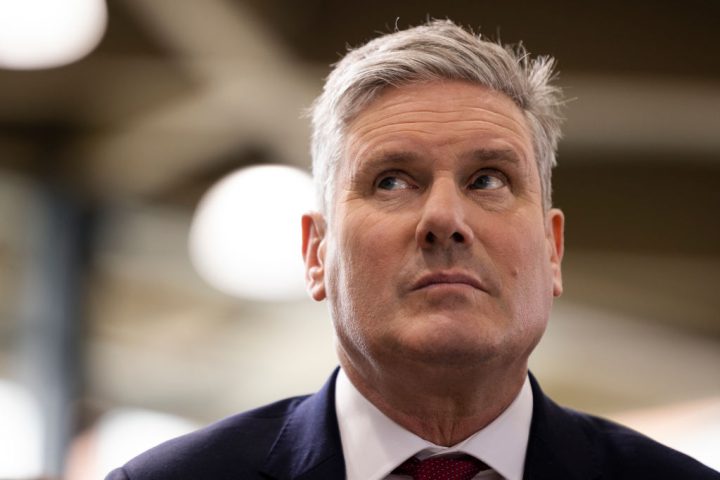Another day, another Keir Starmer U-turn. The Labour leader is facing a backlash from his own side after Starmer used an interview with the BBC’s Laura Kuenssberg’s to say that a Labour government would keep the two-child benefits cap.
When asked whether he would scrap the cap – which has been blamed by Labour politicians for pushing families into poverty – Starmer said he was ‘not changing that policy’. That is a decision that will upset many in the shadow cabinet, let alone the wider parliamentary party.
The current work and pensions secretary John Ashworth has previously described the cap as heinous: ‘the idea that this policy helps move people into work is completely offensive nonsense’. Ashworth’s predecessor in the role, Jonathan Reynolds, also took a dismal view of it. Speaking at the 2021 Labour party conference, when Starmer was already leader, Reynolds said the party planned to scrap it:
Conference, we will not let them forget. Because the steps they took were nowhere near enough. Under Labour’s plans – scrapping the five-week wait, ending the benefit cap and binning the two-child limit – 500,000, yes half a million, fewer people would be in poverty right now. That’s the difference Labour can make: safety and security for you and your family.
So, what’s happened? As the Fabian Society’s Andrew Harrop points out, research by the group found that the public back the current policy when asked both in polls and after deliberation on a citizen’s jury. But a worry about electoral appeal is not the main driving force here – the Fabian Society report also came up with ways to pitch it and more tailored option.
This comes back to money, another sign of the grip of the shadow treasury for fiscal responsibility to come first
Instead, this comes back to money, another sign of the grip of the shadow treasury in Rachel Reeves’s fight for fiscal responsibility to come first. Scrapping the cap, which places a limit on the amount a household can receive in benefits if they have no, or low, earnings, is estimated to cost £1.3 billion. But the current view of the Labour leadership is that the state of the economy means they cannot commit to it. It comes as Starmer refused to say whether a Labour government would spend more money on public services than the Tories.
This is in part because Labour aides feel the best line of attack for the Tories at the next election will be to suggest the party cannot be trusted on the economy and would make the situation worse through higher borrowing. Secondly, there is concern that the situation Labour might inherit will be bad enough that they won’t be able to do many of the things the party would want them to.
The reaction of Labour MPs to the news is a reminder of how hard a sell that will be if in they are power. Over the weekend, Starmer’s MPs have been questioning what the point of a Labour government is if it doesn’t take action on child poverty. It hints at the problems ahead if Keir Starmer enters No. 10, not least in getting his own party to play ball with the hard choices coming.







Comments